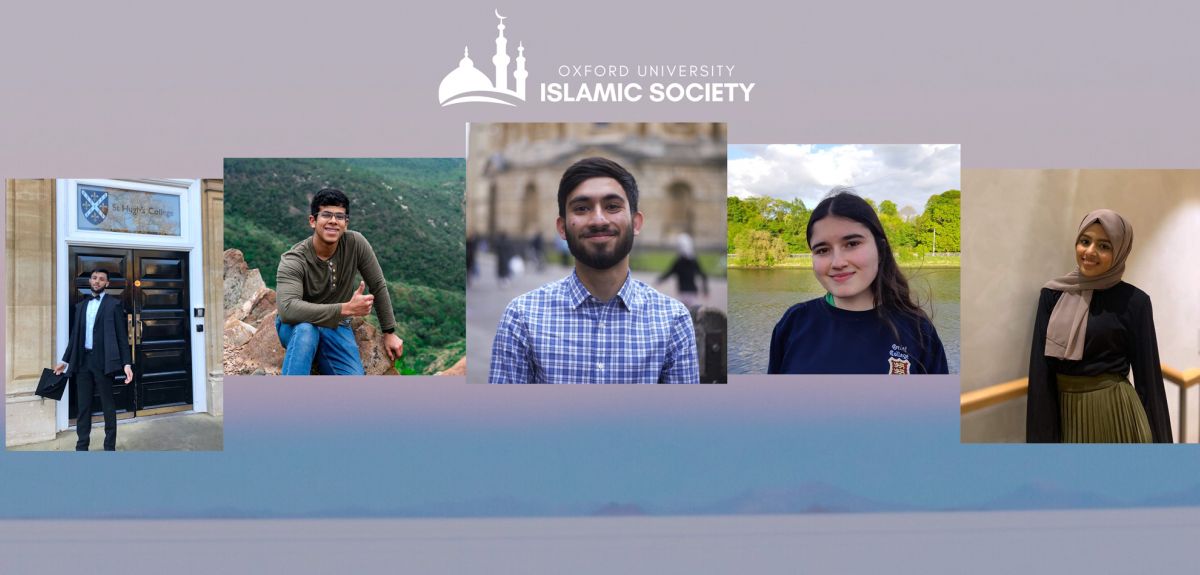
Celebrating Ramadan in lockdown
We met members behind the first edition of the Islamic Student Society (ISoc) magazine Ikhlaas, to share how the publication has helped them to not only stay connected during the pandemic, but to celebrate Ramadan together.
Featuring: Noor Qurashi (Editor), Basim Khajwal (Designer), Muaz Nawaz (Project Manager), Abdul Lateef (Content Curator), and Rashma Rahman (Access Director at ISoc).
What inspired you to set up the magazine?
The impetus to keep the community connected was there and we were all keen to get the project underway, so it was just the perfect time to set up a magazine.
A lot of the inspiration to set up the magazine came from simply being able to observe the bonds that already existed amongst ISoc members — we realised that a magazine would further strengthen these bonds and bring together individuals from all corners of the society.
We had also wanted to showcase the diversity of thought that exists within the ISoc. This would have perhaps naturally manifested itself more explicitly in the Current Affairs section, but generally, every single piece of content was submitted by an individual who brought their own style and perspective, meaning that diversity of thought could be showcased throughout the entire magazine.
Also, we wanted to make this a magazine that people could really enjoy and engage with — a magazine that everyone could look forward to.
How has the magazine helped your members to stay connected in lockdown?
This first issue of the magazine was initiated just as lockdown was put into place and all of the content was curated under lockdown so naturally it was a central topic where otherwise it would have mainly focussed on the then-upcoming month of Ramadan.
I hope that the magazine has given a platform for people to share their thoughts and what they’ve been doing through lockdown to the wider society in a way of mutual benefit and to cater to the kind of people who resonate with this style of content better than the variety of Zoom talks and socials that the ISoc has so far been doing.
Have you organised any online social activities to help members in quarantine?
The OUISoc committee have worked really hard and put our heads together to make sure that the ISoc could still benefit the community in Trinity Term, despite the current circumstances. A large part of Trinity Term is Ramadan, and the OUISoc ensured that there was a religious talk organised nearly every day of Ramadan. Other remote events included Brothers/Sisters Online socials, and even spontaneous Zoom study groups — to keep each other motivated to work in these uncertain times.
Do you think the quarantine experience is different for minority students?
I think the lockdown experience affects everyone differently, not just minority students in any particular way. However, there’s usually a social element to Ramadan, where many Muslims go to the mosque every night to complete special night prayers (called Terawih) together. Similarly, during Eid, we would usually start the day with special prayers in the mosque in the morning, and there’s a special joy in seeing familiar (and unfamiliar) warm faces. That of course changed this year, and instead these prayers were all conducted at home individually with our own families.
During Eid, my family would usually gather with our grandparents and cousins. This year, whilst we couldn’t physically meet, we managed to video call each other and played games online instead. That made things much better, because the warmth and joy of seeing each other during Eid was still there.
How has the ISoc made life easier for Muslim students in lockdown?
The OUISoc Access team has been committed to providing virtual outreach support to prospective students from Muslim backgrounds during the lockdown. The lockdown situation has drawn attention to the deep socio-economic disparities between students across the country and how the most socially disadvantaged students have been significantly affected by lockdown. Our Access team have been working hard on a range of projects, working with social mobility organisations, schools, and the University of Oxford to provide the necessary resources and support for prospective students to aspire and apply to Oxford. We are providing support to ensure the most socially disadvantaged students are aspiring to making a competitive application despite the challenges, to tackle barriers (social, economic and cultural), and to provide insight into being a Muslim student at Oxford University. Keep an eye out on our social media for some exciting insights into our OUISoc community.
How did you make Ramadan/Eid special in spite of the situation?
For Muslims, Ramadan is more than not eating for 18 hours, it’s a month of spiritual development where we better ourselves as individuals. The whole lockdown situation did bum me out initially, but looking back at Ramadan — lockdown was definitely a blessing in disguise! Being away from Oxford meant that I could structure my day how I wanted it, leaving time for my academic commitments in the day, and acts of worship throughout the night. I’m also blessed that I got to eat my mum’s food one last time in Ramadan, and not a meal deal in my college accommodation.
Eid was really enjoyable as it was something to look forward to after the very monotonous days of lockdown. Last year, Eid fell on the day of my first A-level exam, instantly making this year’s Eid a lot more enjoyable than the last. Although we were in lockdown, and couldn’t make it to the mosque, me and my family also managed to do our Eid prayer at home — which was a nice way to end the month.
 OfS Sexual Misconduct Survey 2025
OfS Sexual Misconduct Survey 2025
 Winter vacation University shutdown
Winter vacation University shutdown
 Disability History Month: Oxford SU Disabilities Campaign
Disability History Month: Oxford SU Disabilities Campaign
 Barometer Survey opens for new students
Barometer Survey opens for new students
 Changes to postgraduate research examination outcomes
Changes to postgraduate research examination outcomes